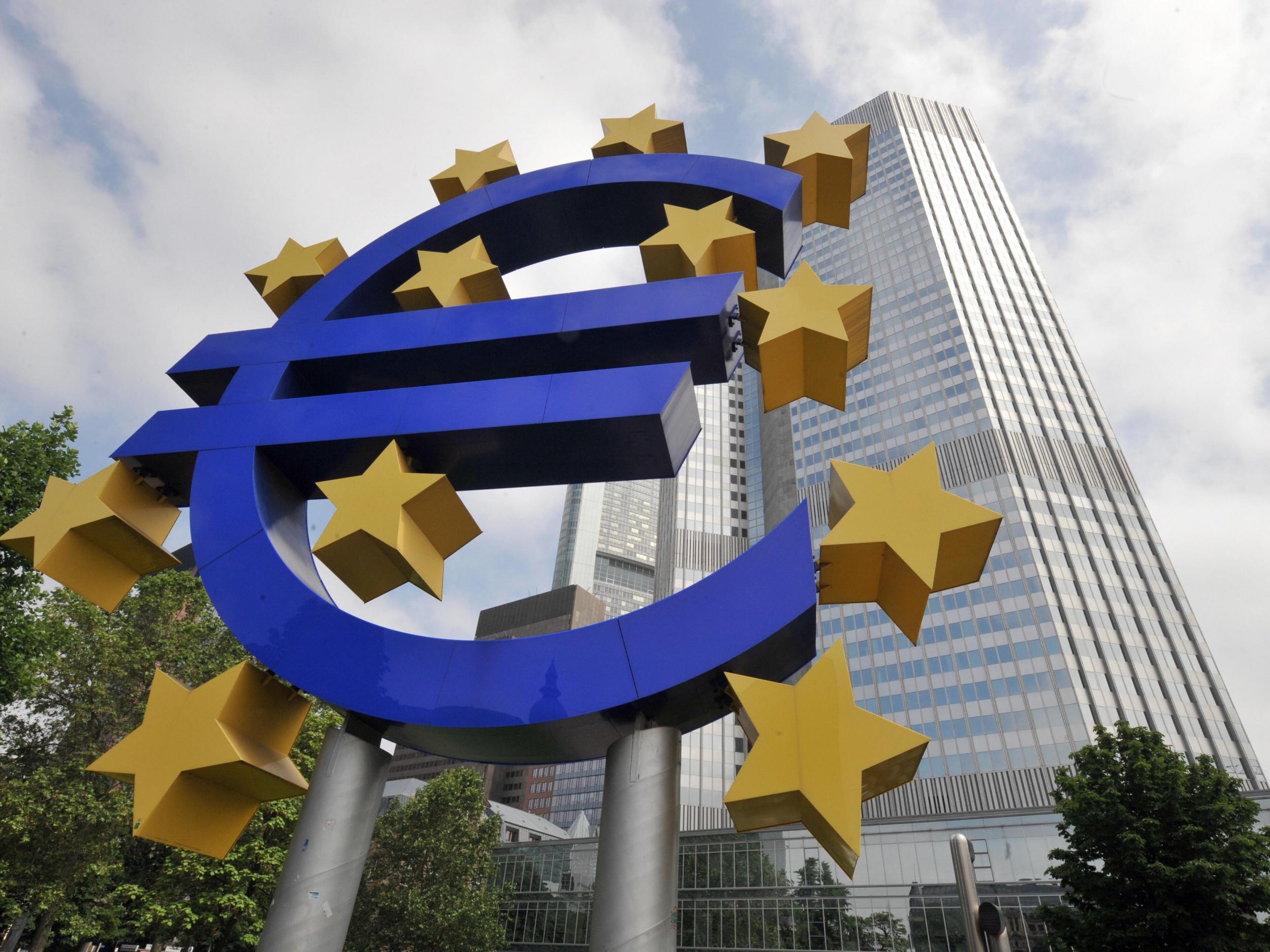A rate cut from the European Central Bank could devastate the economy, but it’s the only move left
In an ideal world, eurozone countries facing a downturn would not be relying on monetary policy to increase demand. Not in this climate, unfortunately


This Thursday, Mario Draghi, the outgoing president of the European Central Bank, will announce yet another effort to boost the eurozone economy. It will be his penultimate meeting before Christine Lagarde, managing director of the International Monetary Fund, takes over on 1 November. He aims, from all accounts, to go out with a bang. The markets expect a resumption of the ECB version of quantitative easing, buying bonds to inject cash into the economy, and another cut in the ECB deposit rate to minus 0.5 per cent. He may surprise everyone by doing something more – we’ll see.
The rationale behind such a package is that the eurozone economy is flagging and something needs to be done to inject some growth. The trouble is that on past form yet another monetary boost is not going to have much effect. In fact, it may hurt the economy more than it helps it.
The problem is not over-expensive credit. There is a wall of money hunting for somewhere to invest. The problem is lack of demand, particularly export demand. Domestic demand in most of the eurozone is not too bad: unemployment, though high by US or UK standards, is the lowest since the financial crash. While people have jobs and confidence, they go on spending money. You should not take any forecasts too seriously and, in any case, we will get some downgrades this week from the ECB, but the broad picture is of a Europe inching forward thanks to buyers at home, but hammered by declines to buyers abroad.
The more export-oriented an economy is, the more likely it is to be in retreat. Demand for German exports in particular has weakened sharply through this summer. This, to some degree, is as a result of the US-China trade restrictions, which have caught Germany in the crossfire, partly because of the travails of the motor industry, but also because of Brexit. German exports to the UK have been particularly weak. As a result, the German economy may already be in a technical recession.
Meanwhile, a decade of very low (and now negative) interest rates have done a lot of damage to the banking system. Bank profitability has plunged, resulting in waves of redundancies among bank staff and branch closures. The most extreme example has been the retreat of Deutsche Bank, which is scaling back most of its non-core operations. But the sector as a whole has suffered to a greater extent than US banking. You may not feel sorry for banks, but an unhealthy banking sector is symptomatic of an unhealthy economy.
So why is the ECB about to press on with policies that have been at best ineffective and at worst actually damaging?
I think the short answer is that there is nothing else they can do. In an ideal world, eurozone countries facing a downturn would not be relying on monetary policy to increase demand. They would turn to the other two main weapons: fiscal policy and structural policies.
On the first, they would allow budget deficits to rise a little either by cutting taxes or by increasing spending. More important, they would be using this period of very cheap money to invest in infrastructure. On the second, there are a whole string of things they could do, including easing planning controls, loosening labour-market restrictions, increasing competition and so on.
But these are political decisions to be taken by governments, not monetary ones that can be taken by central bankers. So when faced with a downturn, the bankers pull the only lever they have at their command: they ease monetary policy.
Actually, it would be unfair to single out the ECB. Much of the same groupthink applies to other central banks. In the US, pushed by a president who was a former property developer, the Federal Reserve will cut rates next week. Here in the UK, a similar orthodoxy has led to a decade of cheap money, with the present excuse to keeping rates down being uncertainty about Brexit. What makes the ECB an extreme example of the genre is that it has imposed negative rates, not just zero or near-zero rates, and its actions have been copied by other European countries including Sweden, Denmark and Switzerland.
Eventually, more normal monetary conditions will return. Interest rates will climb, inflation will push up. I think this whole period of ultra-easy money will be seen as an aberration, something as odd and extreme as the great inflation of the 1970s and 1980s. But that great mind shift is still some way off, as Draghi’s last throw of the dice next week will remind us.
Join our commenting forum
Join thought-provoking conversations, follow other Independent readers and see their replies
Comments